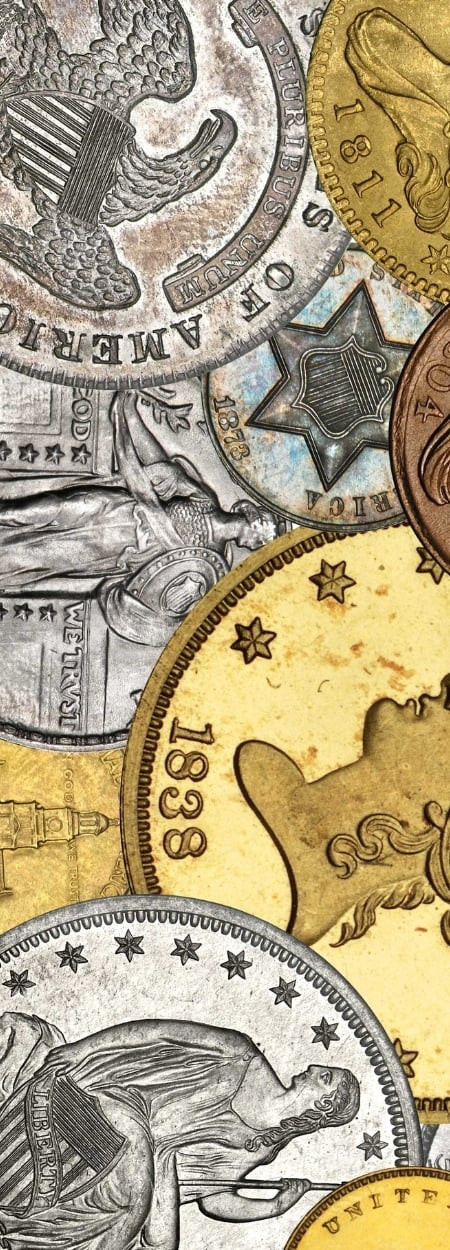For coin enthusiasts, the journey of collecting often leads to a point where selling becomes a consideration. Whether you’re looking to refine your collection, upgrade to more valuable pieces, or simply liquidate assets, knowing where to sell coins is crucial. The best option for you depends on several factors, including the value of your coins, your timeline for payment, and the effort you’re willing to invest in the selling process.
Here’s a breakdown of popular and effective avenues for selling your coins, each with its own set of advantages and disadvantages.
Local Coin Dealers
One of the most straightforward methods is selling to a local coin dealer. Coin dealers are always looking to replenish their inventory and often purchase coins directly from collectors. Whether you have a single coin or an entire collection, a local dealer might be interested. If a dealer isn’t interested in buying your coins themselves, they can often provide valuable guidance and point you towards other suitable options.
Selling locally offers unparalleled convenience. There’s no need for shipping, no minimum value requirements, and minimal hassle. You receive immediate payment upon completing the transaction. However, this convenience might come at the cost of maximizing your profit. Dealers need to factor in their own profit margins when reselling, so expect an offer that is below retail value. If you choose this route, ensure you’re dealing with a reputable dealer, ideally one with whom you have an existing relationship or who has strong credentials.
Search for coin dealers near you through the ANA Dealer Directory
Coin Shows
Coin shows provide a marketplace where numerous dealers converge, creating a competitive environment for selling your coins. From small local gatherings to national conventions like the ANA’s National Money Show® or World’s Fair of Money®, these events offer a chance to present your collection to multiple potential buyers. By obtaining offers from several dealers, you can leverage them against each other to potentially secure a better price than selling to a single local dealer.
While coin shows can yield higher returns, they may require more effort, especially if significant travel is involved to attend a show. You’ll need to factor in travel time and expenses when considering this option.
Find upcoming coin shows in your area on the ANA Events Directory
Auction Houses
For truly valuable coins or collections, auction houses represent a prime venue. If you possess coins valued in the five or six-figure range or higher, local dealers might not have the capacity to purchase them outright. Auction houses specialize in high-value items and have access to a broad network of serious collectors.
Auctions introduce the potential for competitive bidding, which can sometimes drive prices well beyond initial expectations. However, it’s important to be aware of auction house fees, which typically include buyer’s premiums and seller’s commissions. Furthermore, selling through auction houses involves a longer process. You’ll need to wait for your coins to be cataloged, auctioned, and for payment to be processed and sent to you.
Before choosing an auction house, it’s advisable to research and compare different houses. Many auction houses have minimum consignment values, so ensure your coins meet their eligibility criteria.
“Whether selling a few pieces that you’ve since upgraded, or changing your focus to a new set and selling off an entire collection, most collectors eventually find themselves wanting to sell some of their coins.”
 Coins stacked vertically to symbolize the potential value and opportunities when selling coins
Coins stacked vertically to symbolize the potential value and opportunities when selling coins
DIY Online Auctions
If you’re aiming for retail prices but prefer not to wait for a major auction house, or if your collection isn’t of extremely high value, online platforms offer a direct-to-buyer approach. Websites like eBay and MA-Shops allow you to list and sell your coins directly to individual buyers worldwide.
Selling online yourself gives you maximum control over pricing and potential profits, as you bypass intermediaries. However, it also entails significant effort. You are responsible for photographing each coin, creating listings, managing customer inquiries, handling shipping, and resolving any customer issues that may arise. This option is best suited for sellers who have time to dedicate to the process and are comfortable with online sales and customer service.
Ultimately, when considering Where Can I Sell Coins, the most important question to ask yourself is whether you are truly ready to part with your collectibles. While coin collecting can be seen as an investment, the sentimental value attached to these pieces is often immeasurable. If you’ve decided to sell, understanding the available options is the first step towards a successful transaction.
For crucial information on consumer protection during coin transactions, visit the Consumer Awareness Resources page on the ANA website. To locate ANA Member-Dealers in your vicinity and further explore numismatic resources, consult the ANA’s Coin Dealer Directory and visit money.org.
About the American Numismatic Association
The American Numismatic Association is a nonprofit educational organization dedicated to encouraging the study and collection of coins and related items. Serving collectors, the public, and academic communities, the ANA fosters interest in numismatics through diverse educational programs, including its museum, library, publications, conventions, and numismatic seminars.

